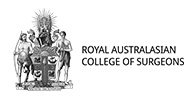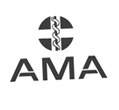What is Hormone Therapy for Prostate Cancer?
Hormone therapy for prostate cancer is also called ‘androgen deprivation therapy” (ADT) or “androgen suppression therapy”.
The aim of hormone therapy is to reduce levels of male hormones, called androgens, in the body, or to stop them from affecting prostate cancer cells.
Hormone therapy alone is no cure for prostate cancer, but can sometimes be used as an early stage therapy instead of “watchful waiting’.
How Hormone Therapy Work?
The main androgens in the body are testosterone and dihydrotestosterone (DHT). Prostate cancer grows in response to testosterone.
Testosterone can be blocked by:
- Injections,
- Tablets, or
- Removing the testicles (although this is rarely performed these days).
These treatments can cause the prostate cancer to shrink in size and keep the cancer from spreading. It does not cure the cancer
Who Can Benefit From Hormone Therapy for Prostate Cancer?
Primary hormonal therapy is usually reserved for patients who have other significant problems that reduce the options of more radical treatments.
Hormone therapy is also used if the cancer:
- Has spread too far to be cured by surgery or radiation
- Remains or comes back after treatment with surgery or radiation therapy, or
- To shrink the cancer before other treatment
Hormone therapy may also be used in conjunction with Chemotherapy, Radiotherapy or Brachytherapy as initial treatment if a patient is at higher risk of cancer recurrence or if the cancer is outside the prostate
Types of Hormone Therapy
There are several types of hormone therapy used to treat prostate cancer. Some are:
- Orchiectomy - chemical castration
- Testosterone lowering drugs
- Androgen suppressing drugs
What Does Hormonal Therapy Involve?
Hormone therapy varies depending on the medication. The administration can be:
- Delivered in tablet, injection or implant forms
- Frequency can be daily, monthly or less frequently
- Dosage
Possible side effects of Hormone Therapy
Hormone therapy for prostate cancer can cause similar side effects from lower levels of hormones such as testosterone. These side effects can include:
- Reduced or absent sexual desire
- Erectile dysfunction (impotence)
- Shrinkage of testicles and penis
- Hot flashes, which may get better or go away with time
- Breast tenderness and growth of breast tissue
- Osteoporosis (bone thinning), which can lead to broken bones
- Anemia (low red blood cell counts)
- Decreased mental sharpness
- Loss of muscle mass
- Weight gain
- Fatigue
- Increased cholesterol levels
- Depression




